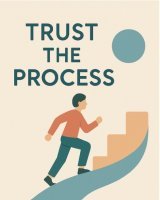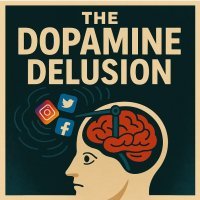The Stories We Tell Ourselves
The Stories That We Tell Ourselves Are A Matter Of Choice.

"All The Things She Said, Running Through My Head..."
Why The Stories We Tell Ourselves?
The stories we tell ourselves are our way of trying to find meaning in what so often feel likes a random, chaotic and meaningless universe.
As you might expect, psychologists have developed a theory about this and it is known as narrative theory - which attempts to show how people construct their identities through storytelling.
Regardless of the theories, the basic human compulsion to tell stories is as old as the human race. In practical terms we are hardwired to tell stories.
The stories we tell ourselves are emotionally driven and very largely reactive to events and situations. They are a form of self talk.
Late last evening I received a message from a business contact telling me that a proposal I had submitted had been rejected by his client. I was annoyed because it quickly became obvious to me that he had not read the full document I sent him and he had overlooked the 3 alternative options which I gave him, and which would have caused the buyer to take us more seriously.
I was also annoyed because I had worked hard for several months to get this guy on board and, based on past experience with other products, he seemed to be very competent.
A story formed itself very quickly in my head of the utter futility of what I am doing in my business and a feeling of deep despair and discouragement.
This narrative kept me awake last night until about 4am this morning when I reminded myself of an important truth: "You are not your thoughts".
The purpose of this article is to take a practical look at ways in which we can harness and refocus the stories that we tell ourselves in ways that are most beneficial to our well being and most resourceful for achieving the most positive outcomes in our lives.
The foundation of this is to learn how to manage and mitigate the self-limiting and self-damaging effects of unfiltered self-talk.
The first key lesson is to understand that:
Living With Your Thoughts
Learning how to live with your thoughts is an important skill because:
- The stories we tell ourselves form the backcloth and the tapestry of our lives.
- These narratives shape and define our sense of self and how and where we see ourselves fitting into the bigger picture of the circumstances of our life.
- The stories that we tell ourselves also form the lens through which we interpret life.
- The effect of this is that we tend to see what we expect to see and life can become a self-fulfilling prophecy.
Framing Your Thoughts
This process is known as framing and is about communication and how you create meaning in your
communications with others, and more
importantly in your internal communication with yourself.
In terms of how we can harness and refocus our self talk framing
is a critical component.
It is important because the framing process is about how you define context, make associations, establish reference
points and emotional touch points all designed and positioned to convey
the sense and meaning that you want to convey to others or, in this context, yourself.
The effect of framing in your self talk matters enormously because if you change your language - if you change what you say and how you say it - you change how you feel; and this in turn affects your results in the outcomes that you experience in your life.
Returning to the anecdote I shared above: as soon as I reminded myself that I am not my thoughts and that I have a choice about the story I told myself, I consciously made a choice to drop the whining, self-pitying story and to reframe and change the voice behind the story to a more empowering perspective of hope and positivity.
The Source Of The Stories We Tell Ourselves
There are 3 interconnected sources of the stories that we tell ourselves.
The first two are covered in: understanding your thoughts.
1. The hardware - the physiology that creates these thoughts, and this is centred on the amygdala, a major emotional centre in the limbic system. This is responsible for our flight / fight response.
These
thoughts are non-rational and largely driven by survival instincts and
pleasure instincts - sometimes referred to as our "animal nature".
2. The software - the conditioning from our primary caregivers and dominant adult figures in our childhood that creates these thoughts.
This is a vast subject and there are many psychological models and interventions used to address and "repair" this conditioning.
The third source and the voice for the stories that we tell ourselves is:
3. The selves - when you refer to "myself" you are not referring to one singular entity but a very complex amalgam of many different aspects of your self sometimes referred to as the "internal family of selves" -also known as "sub-personalities".
The term "self dialogue" can be used in a general sense to describe an internal conversation within yourself between these different elements or perspectives within your mind.
The Transcendent Voice
In their unfiltered state many - if not most - of the voices that express the stories that we tell ourselves will be negative and these will be ego based and thus by definition self-serving. These are the voices that will undermine you.
There is one voice that transcends all other voices and that is the voice of the higher self.
Choose this voice.
This is the voice to listen to.
This is the voice that will empower you.
The Truth Of The Stories We Tell Ourselves
The truth of the stories we tell ourselves is subjective, it is whatever we want it to be.
- What matters is the energy - the dominant underlying emotion - behind the story.
- It is that energy that will be stored in our mind.
- It is that energy that will form the lens through which we interpret the events of that story and all future similar events.
- The stories that we tell ourselves are a matter of choice.
- Understand and use the power of framing.
- Choose the voice of your higher self.
- A story in the voice of your higher self, framed with a positive energy of inspiration, creativity and power transcends the limited, self-serving voices of your egoic self.

Recommended Further Reading - With Action Points
Next Article:
Return from "The Stories We Tell Ourselves" to: Walking The Talk
LATEST ARTICLES
Staying Committed When You Can't See Progress - The Psychology of Grit
 Uncertainty Is Not The Absence Of Progress, Only The Absence Of Reassurance. One of the most destabilising experiences in modern life is not failure, but uncertainty and staying committed when you can…
Uncertainty Is Not The Absence Of Progress, Only The Absence Of Reassurance. One of the most destabilising experiences in modern life is not failure, but uncertainty and staying committed when you can…The Battle For Your Mind - How To Win Inner Freedom In A Digital Age Of Distraction
 From External Events to Inner Events. We often think of “events” as things that happen out there: the traffic jam, the rude comment, the delayed email reply. But what truly shapes our experience is wh…
From External Events to Inner Events. We often think of “events” as things that happen out there: the traffic jam, the rude comment, the delayed email reply. But what truly shapes our experience is wh…How to See Your Thoughts Without Becoming the Story
 A Practical Guide to Thought-Awareness. You can spend your life inside the stories of your mind without ever learning how to see your thoughts clearly and objectively. Most of the stuff we tell oursel…
A Practical Guide to Thought-Awareness. You can spend your life inside the stories of your mind without ever learning how to see your thoughts clearly and objectively. Most of the stuff we tell oursel…The Collison Decision Matrix - A Simple Framework for Better Choices
 The Collison Decision Matrix Is A Practical Everyday Thinking Tool. Most of us spend a surprising amount of time worrying about decisions. From small ones such as what to wear, what to eat, what to te…
The Collison Decision Matrix Is A Practical Everyday Thinking Tool. Most of us spend a surprising amount of time worrying about decisions. From small ones such as what to wear, what to eat, what to te…The Power Of Asking The Right Question
 The Power Of Asking The Right Question Lies In The Quest For Insight. To experience the power of asking the right question you must develop the practice of asking questions. The best way to improve th…
The Power Of Asking The Right Question Lies In The Quest For Insight. To experience the power of asking the right question you must develop the practice of asking questions. The best way to improve th…Site Pathways
 Here is a site pathway to help new readers of Zen-Tools navigate the material on this site. Each pathway is based around one of the many key themes covered on this site and contain a 150 word introduc…
Here is a site pathway to help new readers of Zen-Tools navigate the material on this site. Each pathway is based around one of the many key themes covered on this site and contain a 150 word introduc…How To Live With Contradiction - Beyond Thought Let Stillness Speak
 A major impact on so many peoples' lives is the situational contradiction of unfilled realistic expectations. So where does all this leave us? Well here we are, with mental equipment that is more lim…
A major impact on so many peoples' lives is the situational contradiction of unfilled realistic expectations. So where does all this leave us? Well here we are, with mental equipment that is more lim…How To Trust The Process Of Mindfulness - Right Now
 In mindfulness, the process isn’t some distant goal — it's what is happening right now. When we talk about how to trust the process of mindfulness the credibility of the process is heavily dependent…
In mindfulness, the process isn’t some distant goal — it's what is happening right now. When we talk about how to trust the process of mindfulness the credibility of the process is heavily dependent…Inner Mastery For Outer Impact - Mental Clarity For Effective Action
 Insights only matter if they translate into consistent action. In a world crowded with quick fixes and motivational soundbites, the theme “Inner Mastery for Outer Impact” calls us to something more e…
Insights only matter if they translate into consistent action. In a world crowded with quick fixes and motivational soundbites, the theme “Inner Mastery for Outer Impact” calls us to something more e…The Wise Advocate - Helping You Achieve The Very Best Outcome
 The focus of your attention in critical moments of choice either builds or restricts your capacity for achieving the best outcome. When we talk of 'The Wise Advocate' its easy to think of the consigl…
The focus of your attention in critical moments of choice either builds or restricts your capacity for achieving the best outcome. When we talk of 'The Wise Advocate' its easy to think of the consigl…Trust The Process - Beyond The Cliche
 The phrase "trust the process" has become a cliche, the woo-woo mantra of the "self help" industry. Those three little words feel like they ought to mean something useful but hidden behind them are a…
The phrase "trust the process" has become a cliche, the woo-woo mantra of the "self help" industry. Those three little words feel like they ought to mean something useful but hidden behind them are a…The Dopamine Delusion - Why Anticipation Beats Achievement
 The thrill we feel is not in the having, but in the wanting. The more we have, the more we want. The more things we acquire and the easier things get for us, the more discontent we feel. The more spo…
The thrill we feel is not in the having, but in the wanting. The more we have, the more we want. The more things we acquire and the easier things get for us, the more discontent we feel. The more spo…